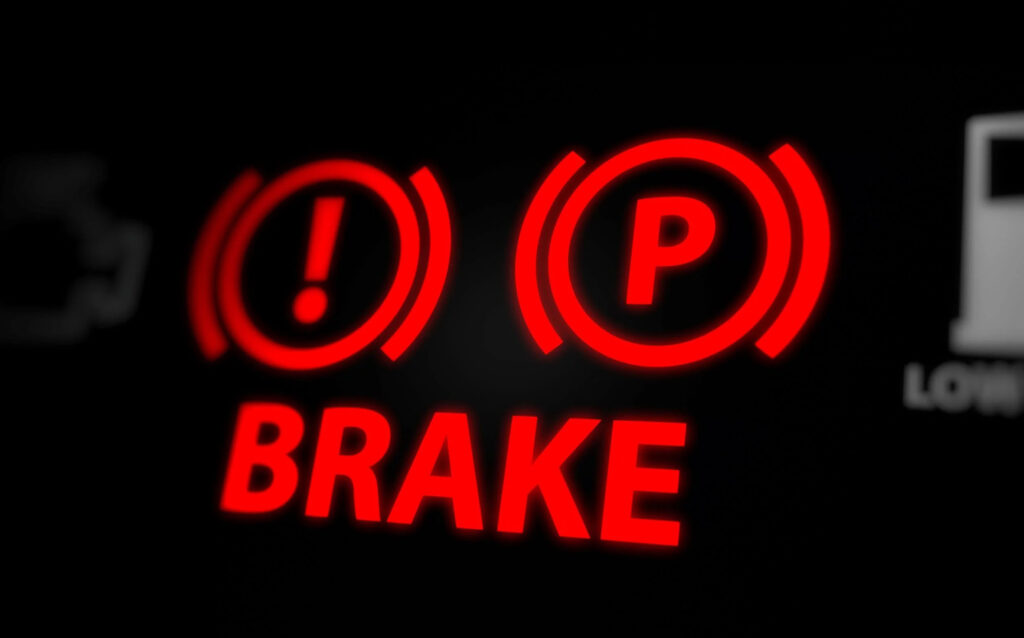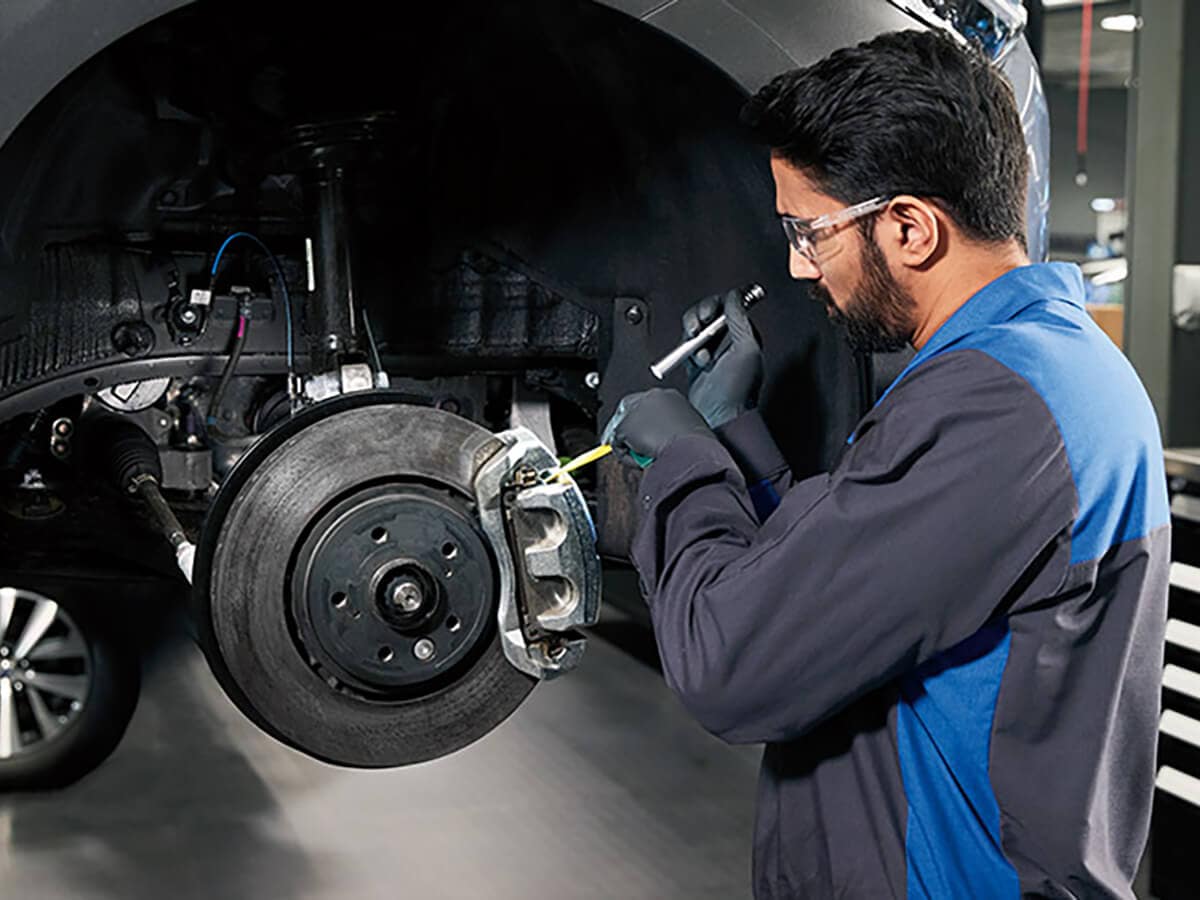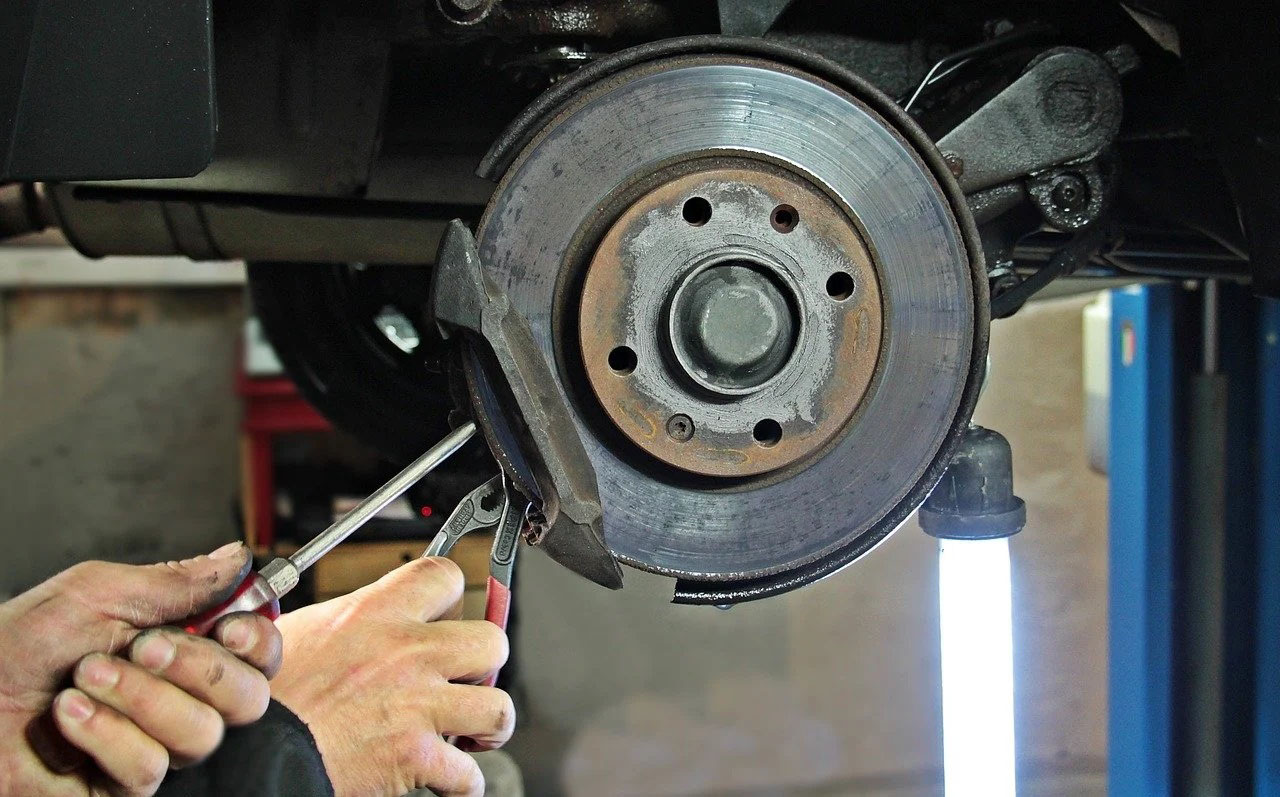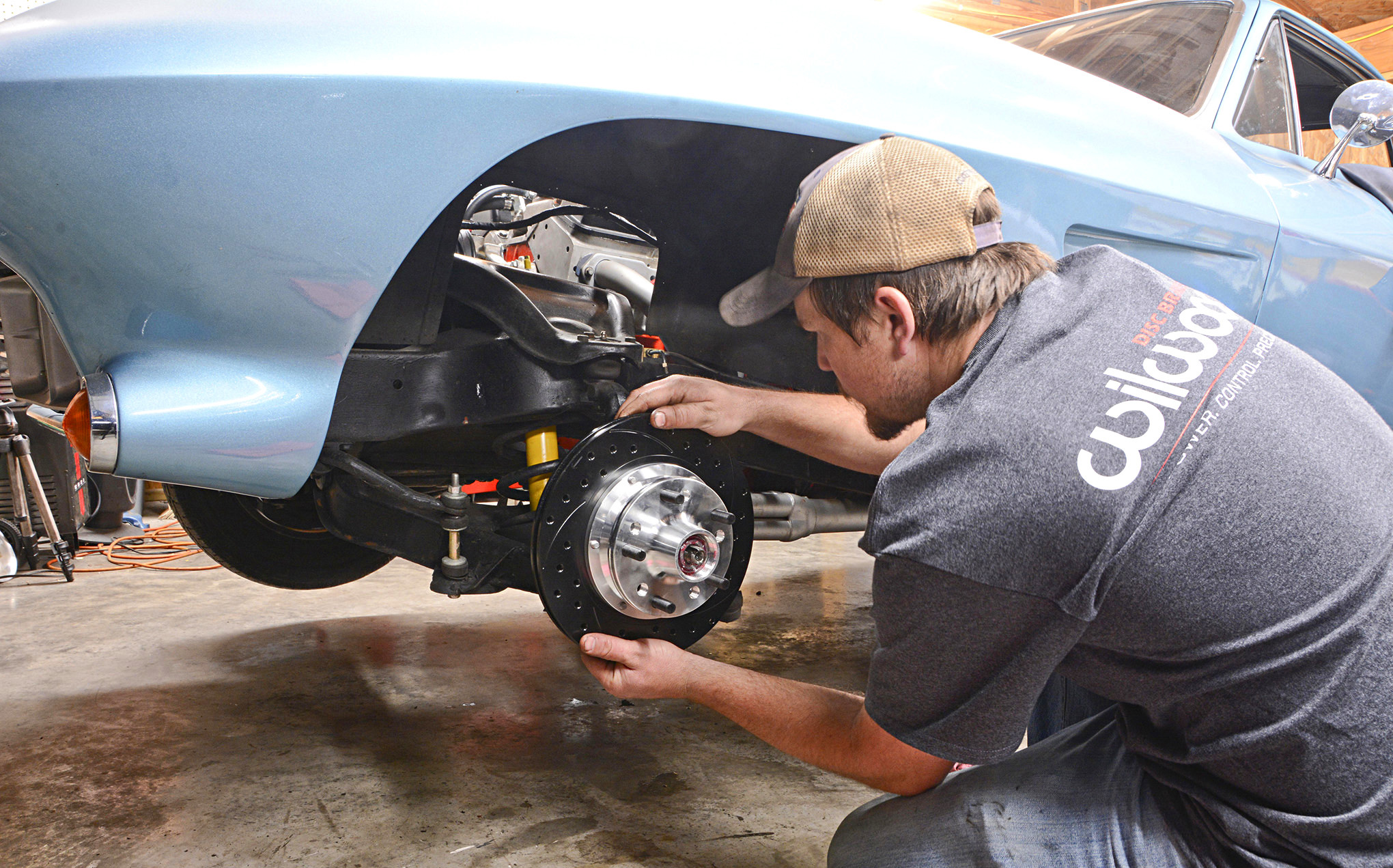Confronting the concern of failing brakes while towing can be a prevalent apprehension. An essential point to consider: brake malfunction with a hitched trailer increases the load on your automobile’s deceleration mechanism.
This write-up will support you in handling these crisis situations and maintaining your safety while traveling. Let’s initiate with safety being paramount!
Table of Contents
ToggleWhy Brake Failure is More Dangerous While Towing
When you tow, your car has more weight and moves faster. This makes it harder to stop and puts extra stress on your car’s brakes.
Increased Weight and Momentum
Towing adds extra weight to your vehicle, making it heavier and harder to stop. Think of it this way: when you’re towing a trailer or boat, the combined weight of your car and the tow can double or even triple.
This means more momentum. More momentum makes it harder for brakes to do their job quickly and safely. If your brake system was only made to handle the car’s weight, adding a trailer puts too much strain on it.
Brake failure with a heavy load is like trying to slow down a freight train with bicycle brakes.
I learned this firsthand last summer while towing my boat to the lake. Despite checking my vehicle before hitting the road, I didn’t consider how the added weight would affect my stopping distance.
On a steep downhill, I felt my pedal go soft underfoot – a clear sign of brake trouble. It was terrifying but taught me never to underestimate how towing changes driving dynamics.
Strain on the Vehicle’s Brake System
Pulling extra weight makes your car’s brakes work harder. Think of it this way: The more your trailer weighs, the more effort your brake system needs to stop everything safely. This means every part of the braking system gets a workout.
Your brake pads, rotors, and fluid all feel the pressure.
Your vehicle was made to stop its own weight plus a bit more. But when you tow something heavy, stopping takes longer and is tougher on the brakes. If you keep towing without checking your brakes, parts like discs and calipers might wear out faster than usual.
Over time, worn-out parts can lead to brake failure. Keeping an eye on these parts helps avoid trouble down the road.
Immediate Steps to Take During Brake Failure
If your brakes fail while you’re towing, first stay cool and don’t panic. Next, shift to a lower gear to help slow down the car.
Stay Calm and Avoid Panic
Maintaining serenity is crucial if your brakes stop working during towing. Fear can exacerbate the situation. Your thought process remains more focused when you’re serene, which simplifies the process of deciding your next action.
Draw long breaths and concentrate on resolving the issue, rather than being scared of possible outcomes. This attitude equips you better to manage the crisis.
Stay composed; it’s your most effective asset during any emergency.
You have alternatives such as switching to a lesser gear or utilizing the trailer’s cessation mechanism if it possesses one. These steps can aid in decelerating your vehicle safely without solely depending on the primary brake system.
Being able to recall these steps becomes simpler when you prevent fear from dominating.
Downshift to Lower Gears
Downshifting to lower gears helps you slow down your car when towing without brakes. This method uses engine braking, which makes the engine slow the vehicle. You can do this in both manual and automatic vehicles with paddle shifters or gear selectors.
Start by gently shifting down one gear at a time. This gives you more control over your speed without using the brake pedal.
In cars with automatic transmission, use your paddle shifters if available. For those driving stick, push the clutch and move to a lower gear carefully. This step is key for slowing down safely when you cannot rely on your regular brakes while pulling heavy loads.
Use Trailer Brakes (If Equipped)
If your vehicle has them, using trailer brakes can help during brake failure while towing. These brakes are on the trailer itself and work separately from your car’s brakes. This means they can help slow down the trailer even if your car’s brakes aren’t working well.
I’ve had to use them before when towing a heavy load, and it made a big difference in controlling the speed.
To use these brakes effectively, you should know how they work before you start towing. Most times, there’s a controller inside your vehicle that lets you adjust how much braking power goes to the trailer.
If you feel like the trailer is pushing too hard on your vehicle when slowing down, increase the brake power on the controller. This advice came in handy for me once during a downhill drive with a full load.
The extra control kept us safe until we could get things fixed.
Using Emergency Brake Techniques
If your main brakes fail, knowing how to use emergency brake techniques can save you. Pumping the brake pedal helps build up pressure again, and slowly pulling the parking brake lever can slow you down safely.
Pump the Brake Pedal to Build Pressure
Applying the brake pedal promptly might assist in generating pressure in the hydraulic brake system, a crucial assistive measure if your brakes unexpectedly cease to function. With each application, brake fluid is propelled through the system, arriving at the brake caliper and pads encircling each wheel.
This method can be forceful enough to reduce your vehicle’s speed or bring it to a halt.
Taking swift actions can change outcomes. Emphasizing on your brake pedal might be your saving grace.
Please be aware, this method doesn’t provide a lasting solution. It’s merely an interim tactic to enable a safe halt or deceleration. Subsequent to this, proceed directly to a car repair outlet for a comprehensive inspection of the brakes inclusive of disc brakes, drum brakes, and any potential seepages in the master cylinder.
Apply the Emergency Brake Gradually
Pull the emergency brake slowly if you find your brakes failing. Doing this too fast can make your car skid, especially while towing. Think of it like squeezing a fruit; apply pressure gently to avoid squishing it.
You want to stop safely without losing control.
I had to use my emergency brake once on a steep hill with my trailer attached. I pulled it up bit by bit and felt the car slowing down without jerking or skidding. It’s crucial not to panic and rush the process.
This gradual method helps maintain control over your vehicle and whatever you’re towing, ensuring you come to a safe stop.
Steer into a Safe Area if Possible
If your brakes fail while towing, aiming for a safe area is key. Look for an open space away from traffic. This can be a parking lot or the side of the highway if it’s wide and clear.
Your goal is to avoid other cars and obstacles.
I had to do this once when my trailer brakes stopped working. I turned on my hazard lights and used hand signals to let others know I was in trouble. Then, carefully, I steered into an empty spot off the road.
It took slow movements of the steering wheel and a lot of focus but kept everyone safe until help arrived.
Preventing Brake Failure While Towing
To avoid brake failure while towing, you need to keep your brakes in top shape. Make sure to check them often. You should also use the right equipment for towing. This includes things like brake controllers that help manage how your trailer stops.
Keep an eye on how well your brakes work when you’re pulling something behind you. This way, you can enjoy a safe ride every time you tow.
Regular Brake System Inspections
Checking your brakes often is key, especially before you tow. This means looking at the brake pads, rotors, and fluid levels. You might not see or feel problems right away. But a mechanic can spot wear and tear that you can’t.
They use special tools to measure thickness and check for leaks.
I learned this the hard way on a trip last year. My mechanic found a small leak in the brake line during an inspection I thought was too soon. Fixing it early saved me from big trouble on the road later.
Always get your towing vehicle’s brakes checked regularly by a pro at an auto repair shop to stay safe.
Using Proper Towing Equipment (Brake Controllers)
Using the right towing gear, like brake controllers, is key. These devices help you manage your trailer’s brakes. It’s a way to make sure both your car and trailer stop safely when you need them to.
Think of them as a link between your foot on the brake pedal and the trailer slowing down.
I found this out first-hand on a trip through hilly terrain with my truck and camper. Before leaving, I fitted an electronic brake controller. This little gadget adjusted how much braking power went to the trailer based on how hard I pressed the brakes in my truck.
It made a huge difference, especially going downhill. Without it, stopping would have taken longer, putting strain on my truck’s brakes and making it harder to control speed with such a heavy load behind me.
Monitoring Braking Performance During the Tow
Keeping an eye on your brakes’ performance while towing is key. Make it a habit to check your brake-pad wear and tear regularly. Your vehicle’s dashboard lights can alert you to issues with the braking system, such as low friction material on brake pads or problems with the antilock brake system.
Listen for unusual sounds like grinding or squeaking from your brakes, which can signal it’s time for a visit to the auto shop.
Pay attention to how your vehicle and trailer feel during braking. If stopping takes longer than usual or if the pedal feels soft, these could be signs that your brakes need attention.
Brake controllers are useful tools here; they adjust how much braking power goes to your trailer based on weight and speed, keeping you safer on the road.
Safe towing starts with knowing every part of your journey – especially how well your vehicle can stop.
When to Use Runaway Truck Ramps
If your vehicle starts speeding out of control while towing, runaway truck ramps are there to help. They provide a safe way to stop when going downhill and your brakes fail.
Identifying Runaway Ramp Locations
You can identify locations for runaway ramps prior to embarking on your journey. Examine maps or GPS applications typically utilized by drivers. These resources illustrate where the ramps are located on major highways, particularly in mountainous terrains where brake failure is common.
Indicators also direct you towards these ramps during your journey. They are typically situated in areas where trucks accumulate excessive speed downhill.
Driving institutions and car repair facilities sometimes maintain registers of widely recognized runaway ramp locations. They can provide guidance on how to recognize these ramps while driving.
Be mindful, these ramps are a safety precaution, so be vigilant for signs and use your map or GPS to prepare in advance.
How to Safely Enter and Use a Runaway Ramp
Identifying a runaway ramp ahead necessitates prompt and safe action. Initiate your move towards the ramp by clearly signaling your intentions, thus notifying other road users of your intended path.
Maintain a steady grip on the steering wheel as you direct your vehicle onto the ramp. These ramps are usually filled with materials like gravel or sand to ensure deceleration, making it necessary for you to remain composed and continue steering until you achieve a complete halt.
Egressing with equal serenity is equally vital. Upon halting, avoid attempting to extricate your vehicle from the dense material unassisted; this could potentially inflict more damage on your vehicle.
Instead, await expert assistance from road safety personnel such as towing services or automotive repair facilities, who can safely retrieve your vehicle. This safeguarding strategy promotes your personal safety and averts further damage to your car or trailer braking system during salvage operations.
Conclusion
Towing with a working brake system keeps you safe. If your brakes fail, don’t panic. Use lower gears and trailer brakes to slow down. Pump your brake pedal or use the emergency brake carefully.
Check your brakes often and know how to handle emergencies. This way, towing stays safe for everyone on the road.
FAQs
What should I do if my trailer brakes fail while towing?
If your trailer brakes fail during vehicle towing, try to stay calm and focus on safety. Use the manual transmission to slow down gradually without relying on the accelerator or gas pedal.
How can I prevent brake issues when towing?
Preventing brake issues when towing involves regular maintenance of your vehicle’s brake rotors and disks. Check with an auto mechanic regularly and follow a checklist for towing safety.
Can antilock brakes help in managing brake failure during towing?
Yes, antilock brakes are designed to prevent skidding during emergency handling situations like a sudden brake failure while you’re driving.
Are there any warning signs that my brakes might be failing?
Yes, some warning signs include squealing noises, vibrations in the steering wheel, or a lit-up brake light on your dashboard which all indicate potential problems with your power steering or braking system.
Where can I learn more about safe practices for vehicle towing?
Driver education courses often cover topics such as how to handle emergencies like a brake failure while towing as well as general tips for maintaining safety when hauling heavy loads.




